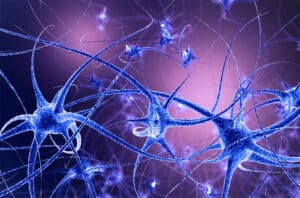The Mayo Clinic reports that individuals with autism spectrum disorder (ASD) tend to experience more gastrointestinal symptoms, including pain, constipation, and diarrhea, than their peers. Unfortunately, scientists have not yet established how digestive symptoms are linked to ASD. However, Harvard Medical School and MIT researchers may have found the key. These researchers worked with animal models to explore the connection between autism and intestinal inflammation, Science Daily reports.

Connecting Infection in Pregnancy to Autism and Inflammation
Interleukin-17a, or IL-17a, is a pro-inflammatory cytokine produced by the immune system. IL-17a is a common immune response to infection, creating inflammation in the body as a way to fight off disease. However, elevated IL-17a in pregnancy could also have an effect on fetuses and newborns – an effect that could explain certain autism symptoms, including intestinal inflammation. Research recently published in Immunity explores that connection.
Per the research brief, when a mother experiences an infection during pregnancy, her immune system understandably produces elevated levels of IL-17a. The researchers found that IL-17a can not only alter brain development in the fetus, but it can also alter the mother’s microbiome, actually priming the infant’s immune system for “future inflammatory attacks.” To determine this, the research team used mouse models to explore fetal brain development after elevated IL-17a exposure. They found that exposed mouse models exhibited autism-like behavioral symptoms – but they also exhibited gut inflammation when exposed to other inflammatory stimuli. This is also known as an “aberrant immune response.”
Tracking Immune Responses and Inflammation
Next, the research team sought to answer one question: What causes the aberrant immune response in affected mouse models? Specifically, is it something that occurs in the womb, or is it something that occurs shortly after birth? To find out, the team switched mouse pups at birth. Pups born to mothers with maternal immune activation (MIA) were reared by control mothers, and vice versa. At this point, the team found that pups born to MIA mothers but reared by control mothers exhibited the autism symptoms but not the subsequent intestinal inflammation. Conversely, pups born to control mothers but reared by MIA mothers did not show autism symptoms but did experience intestinal inflammation. This allowed scientists to determine that neurodevelopment is altered before birth; however, the immune response and subsequent inflammation is a postnatal occurrence. But how did the MIA mothers prompt that immune response?
Testing the Maternal Microbiome in Animal Models
In the final study phase, the researchers noticed a link between IL-17a production, inflammation, and immune system T cells, the latter of which help the body fight infection. The scientists found that CD4 T cells, a certain type of T cell, were more likely to differentiate into IL-17a-producing Th17 cells in the MIA-microbiome-exposed mice. Ultimately, this suggests that IL-17a can be produced in offspring after exposure to an “altered microbiome” in an infected mother. This is due to the presence of the mother’s CD4 T cells, which are known to produce IL-17a.
Long-Term Research Implications
This particular research could have long-term implications for autism research. However, researchers do caution that the study findings have not been confirmed in humans outside of animal models. Regardless, if this study is any indication certain central nervous and immune system problems in individuals with ASD could all link back to maternal infection during pregnancy.
_____
This research suggests that infection during pregnancy could have long-term health consequences for offspring – a concern that is more timely than ever, due to the COVID-19 pandemic. While the study’s results have not been confirmed using human test subjects, this use of animal models provides an interesting path forward for autism research.
Scantox is a part of Scantox, a GLP/GCP-compliant contract research organization (CRO) delivering the highest grade of Discovery, Regulatory Toxicology and CMC/Analytical services since 1977. Scantox focuses on preclinical studies related to central nervous system (CNS) diseases, rare diseases, and mental disorders. With highly predictive disease models available on site and unparalleled preclinical experience, Scantox can handle most CNS drug development needs for biopharmaceutical companies of all sizes. For more information about Scantox, visit www.scantox.com.








